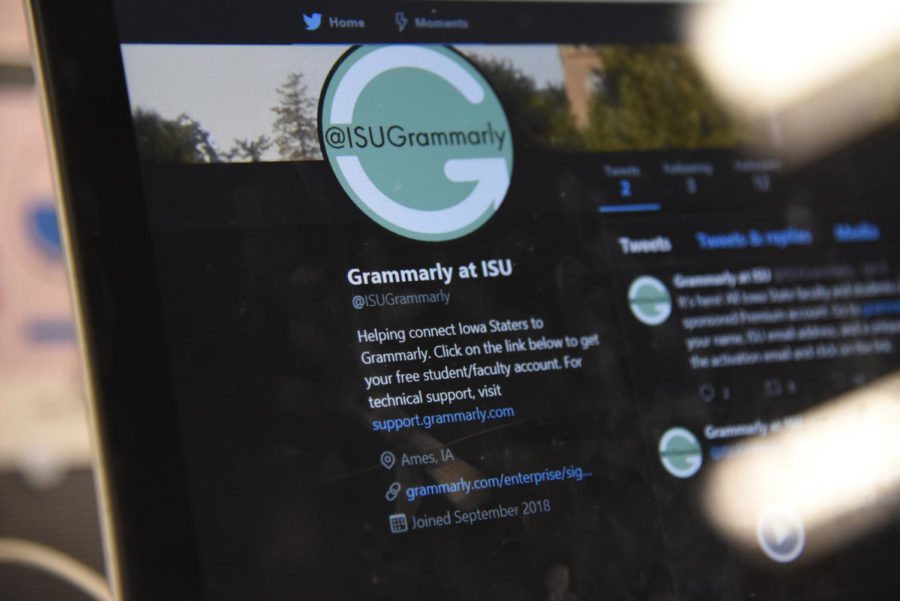Grammarly Premium to improve writing at Iowa State
January 15, 2020
Grammarly Premium is storming Iowa State in the upcoming semester to offer students and faculty an opportunity to improve their writing skills.
Grammarly is a technology company that develops a digital writing tool using artificial intelligence and natural language processing to strengthen writing, according to the Grammarly app.
In the past, students and faculty on campus have only had access to the free version of Grammarly until a recent pilot project, started in 2018, offered the premium version.
To sign up for it, students can go to www.grammarly.com/enterprise/signup and enter their name, ISU email address and a unique password. An activation email will be sent to the email.
Jim Ranalli, assistant professor in the English department, said there are several differences between the free and premium versions of Grammarly.
“The free version gives you spelling, grammar, punctuation and sentence structure checks,” Ranalli said. “Within those checks, it holds some of those errors from you, so you’re not getting everything it’s finding. With the premium version, you get all the things that it’s finding in basic checks, and then you get plagiarism detection services and checks for style and vocabulary enhancement.”
The Grammarly pilot project at Iowa State was funded through the Center for Excellence in Learning and Teaching (CELT) and was part of the Miller Faculty Fellowship.
“We received around $13,000 to fund a tryout of Grammarly premium in a variety of courses,” Ranalli said. “The tryout took place in around 45 different classes and 26 participating faculty and about 1,400 students.”
Ranalli said they received positive feedback from a student survey; students said they felt more confident in their writing with access to Grammarly Premium.
“The instructors noticed an improvement in the students’ writing as well,” Ranalli said. “This made it easier to give feedback on writing because they can focus more on higher-level things, such as quality of ideas and creativity.”
Compared to other grammar tools, Grammarly claims it finds 10 times as many errors in writing. Ranalli said his research of Grammarly through his linguistics study proves this claim to be factual.
“People have an assumption,” Ranalli said. “They compare [Grammarly] to the checker in Microsoft Word because it’s everyone’s go-to for spelling and grammar. They work similarly in the way that they both underline errors and give feedback in the margins, but Grammarly finds much more, and my research backs that up.”
Second language writers attempting to write in English with a different native tongue also benefited from the use of Grammarly, Ranalli said. The app can find more unique errors in that area with its different types of technology.
Unlike Microsoft Word, Grammarly is able to send your text back and forth through its remote servers to perform sophisticated linguistic analyses, creating a more diverse array of errors to be found. It integrates into a web browser, so it can be used in email, Canvas, Google docs and mobile device keyboards.
Funding for Grammarly Premium in the upcoming year comes from a student technology fee. Those funds are put into a pool for a committee known as the Committee on the Advancement of Student Technology for Learning Enhancement (CASTLE) to be distributed to various technological advancements at Iowa State.
Ranalli said the end goal for Grammarly Premium making its way to campus is to improve the writing of students.
“In terms of benefit, the hope is that Grammarly helps students and faculty do their jobs better,” Ranalli said. “The goal is for it to grease the wheels by facilitating more polished and accurate writing.”

















